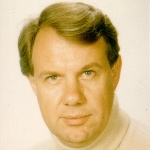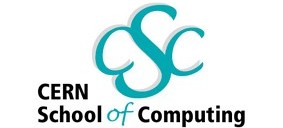|
Special evening lecture
Thon Hotel, Room adjacent to the dining room 21:30
From Nano-Scale to Peta-Scale Computing
|
|
The lecture is given by Dr.
Herbert Cornelius.
He will be available
today and tomorrow at all breaks and lunches / dinner to
answers question and give more information. |
 |
Abstract
of the presentation
As we see Moore's
Law still continuing, it now allows to implement a wider range of
processors and computing platforms targeted towards its respective
usage models and environments. Based on advanced Nano-Scale
technologies it spans from tiny embedded System-on-a-Chip (SOC) to
high-end Peta-Scale performance systems, enjoying a common core
architecture with targeted and optimized value add-ons, as well as
its comprehensive and well established software development
eco-system. In addition, more and more features and parallelism are
being introduced to all computing platforms on all levels of
integration and programming. Especially in the area of
High-Performance and High-Throughput Computing, users can entertain
a combination of different hardware and software parallel
architectures and programming environments. Those technologies range
from single-core SIMD computation (vectorization) over multi-core
shared memory multi-threading (e.g. OpenMP) to distributed memory
message passing (e.g. MPI) on cluster systems. But it also puts more
and more demand on application software and its development tools
for parallel computing in respect to the various challenges and
opportunities. This talk will cover major computer hardware
architecture trends and its associated parallel software tools. We
will touch on some of the respective software tools for the main
phases of parallel software development: implementation,
correctness, analysis and performance. For all tools, scalability
and ease-of-use is very important to enable higher productivity for
its users.
|
Herbert Cornelius |
INTEL, Munich - Germany |
|
 |
Dr. Herbert Cornelius is Technical Director of the Intel Advanced
Computing Center in EMEA and manages the Intel Parallel Applications
Center worldwide, focusing on scalable parallel
algorithms/applications and its implementation based on multi-threading and
message passing utilizing multi-core/multi-processor cluster platforms.
Prior to this position he was the EMEA Technical Marketing Manager
Enterprise Computing und New Technologies Enabling. He joined Intel in 1993
as Computational Scientist in the Scalable Systems Division EMEA and has
held various technical and management positions in the areas of Applications
and Software Engineering. Before joining Intel, he served as Manager
Supercomputing Europe at Fujitsu and worked at Cray Research from 1983 to
1990. Prior he worked as Assistant Professor for Applied Mathematics at the
University of Karlsruhe. Cornelius received a Ph.D. degree in Mathematics
and M.S. degree in Mathematics and Informatics from the Technical University
of Berlin, Germany.
|
|

